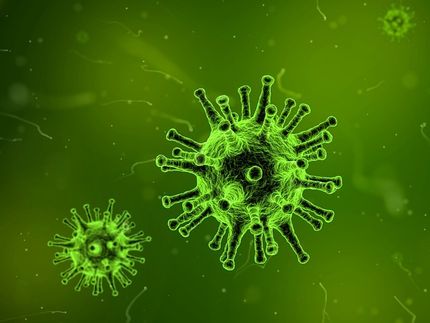Patient's own immune cells may blunt viral therapy for brain cancer
Doctors now use cancer-killing viruses to treat some patients with lethal, fast-growing brain tumors. Clinical trials show that these therapeutic viruses are safe but less effective than expected.
A new study led by researchers at the Ohio State University Comprehensive Cancer Center – Arthur G. James Cancer Hospital and Richard J. Solove Research Institute (OSUCCC – James) shows that the reason for this is in part due to the patient's own immune system, which quickly works to eliminate the anticancer virus.
The findings, published in Nature Medicine, show that the body responds to the anticancer virus as it does to an infection. Within hours, specialized immune cells called natural killer (NK) cells move in to eliminate the therapeutic virus in the brain.
The researchers discovered that the NK cells attack the viruses when they express specific molecules on their surface called NKp30 and NKp46. "These receptor molecules enable the NK cells to recognize and destroy the anticancer viruses before the viruses can destroy the tumor," says co-senior author Dr. Michael A. Caligiuri, director of Ohio State's Comprehensive Cancer Center and CEO of the James Cancer Hospital and Solove Research Institute, and a senior author of the study.
"When we blocked those receptors, the virus has more time to work, and mice with these brain tumors live longer. The next step is to block these molecules on NK cells in glioblastoma patients and see if we can improve their outcome," says Caligiuri, who is also the John L. Marakas Nationwide Insurance Enterprise Foundation Chair in Cancer Research. This study of cancer-cell-killing, or oncolytic, viruses is an example of the value of translational research, in which a problem observed during clinical trials is studied in the laboratory to devise a solution.
"In this case, clinical trials of oncolytic viruses proved safe for use in the brain, but we noticed substantial numbers of immune cells in brain tumors after treatment," says senior author and neurosurgeon Dr. E. Antonio Chiocca, who was professor and chair of neurological surgery while at Ohio State University.
"To understand this process, we went back to the laboratory and showed that NK cells rapidly infiltrate tumors in mice that have been treated with the therapeutic virus. These NK cells also signal other inflammatory cells to come in and destroy the cancer-killing virus in the tumor."
Organizations
Other news from the department science

Get the life science industry in your inbox
By submitting this form you agree that LUMITOS AG will send you the newsletter(s) selected above by email. Your data will not be passed on to third parties. Your data will be stored and processed in accordance with our data protection regulations. LUMITOS may contact you by email for the purpose of advertising or market and opinion surveys. You can revoke your consent at any time without giving reasons to LUMITOS AG, Ernst-Augustin-Str. 2, 12489 Berlin, Germany or by e-mail at revoke@lumitos.com with effect for the future. In addition, each email contains a link to unsubscribe from the corresponding newsletter.



















































